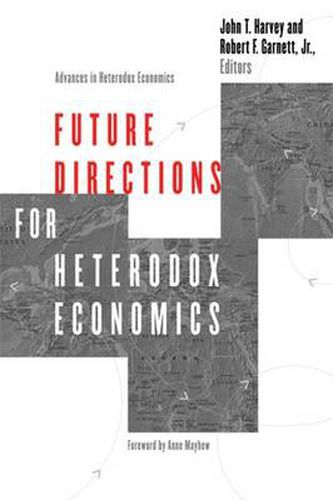Readings Newsletter
Become a Readings Member to make your shopping experience even easier.
Sign in or sign up for free!
You’re not far away from qualifying for FREE standard shipping within Australia
You’ve qualified for FREE standard shipping within Australia
The cart is loading…






This work is a comprehensive survey of the current state - and future direction - of heterodox economic thought. Twenty-first century economists will have to understand and improve a post-Cold War world in which no single economic theory or system holds the key to human betterment. Heterodox economists have much to contribute to this effort, as a wave of pluralism spawns new lines of research and new dialogues among non-mainstream economists.
Future Directions for Heterodox Economics
showcases the full range of heterodox ideas, surveying leading-edge discussions of pluralism; socially-grounded reconstructions of the individual in economic theory; the goals and tools of economic measurement and professional ethics; the complexities of policymaking in today’s global political economy; and innovative connections among formerly separate theoretical traditions (Marxian, Austrian, feminist, ecological, Sraffian, institutionalist, and post-Keynesian).
$9.00 standard shipping within Australia
FREE standard shipping within Australia for orders over $100.00
Express & International shipping calculated at checkout
This work is a comprehensive survey of the current state - and future direction - of heterodox economic thought. Twenty-first century economists will have to understand and improve a post-Cold War world in which no single economic theory or system holds the key to human betterment. Heterodox economists have much to contribute to this effort, as a wave of pluralism spawns new lines of research and new dialogues among non-mainstream economists.
Future Directions for Heterodox Economics
showcases the full range of heterodox ideas, surveying leading-edge discussions of pluralism; socially-grounded reconstructions of the individual in economic theory; the goals and tools of economic measurement and professional ethics; the complexities of policymaking in today’s global political economy; and innovative connections among formerly separate theoretical traditions (Marxian, Austrian, feminist, ecological, Sraffian, institutionalist, and post-Keynesian).